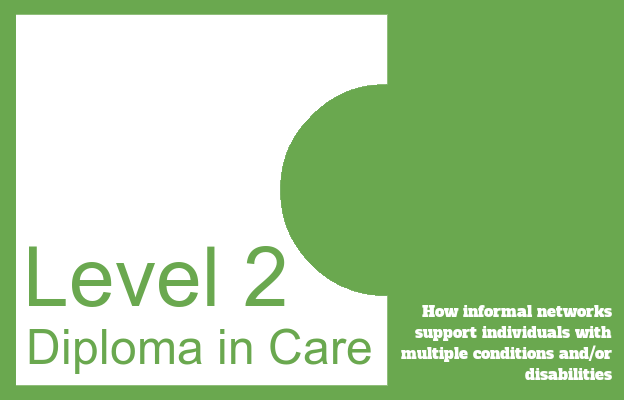This page is designed to answer the following questions:
- 2.4 Describe how informal networks can provide support to individuals with multiple conditions and/or disabilities (Level 2 Diploma in Care, Contribute to the support of individuals with multiple conditions and/or disabilities)
Informal networks are unpaid, non-professional people and groups that can provide support to individuals with multiple conditions and/or disabilities. Typical informal networks include:
- Family
- Friends
- Neighbours
- Shared interest groups (e.g. religious/spiritual groups, hobby groups etc.)
These people and groups will often know a lot about the individuals they support including past history, wishes and preferences which can be important information to help an individual live their lives the way that they want to, especially if they are unable to express their needs and preferences easily themselves.
They will also often have a strong bond with the individual and look out for their best interests as well as providing emotional and spiritual support to them.
Because it is a personal relationship, rather than a working relationship they will also be able to provide support that professional care workers cannot, such as affection and intimacy.
It is important for individuals to feel a sense of belonging, which can be provided by informal groups such as a family unit or social network. This can make them feel valued and increase their self-esteem, confidence and general wellbeing.

